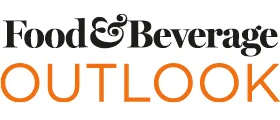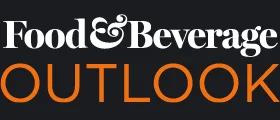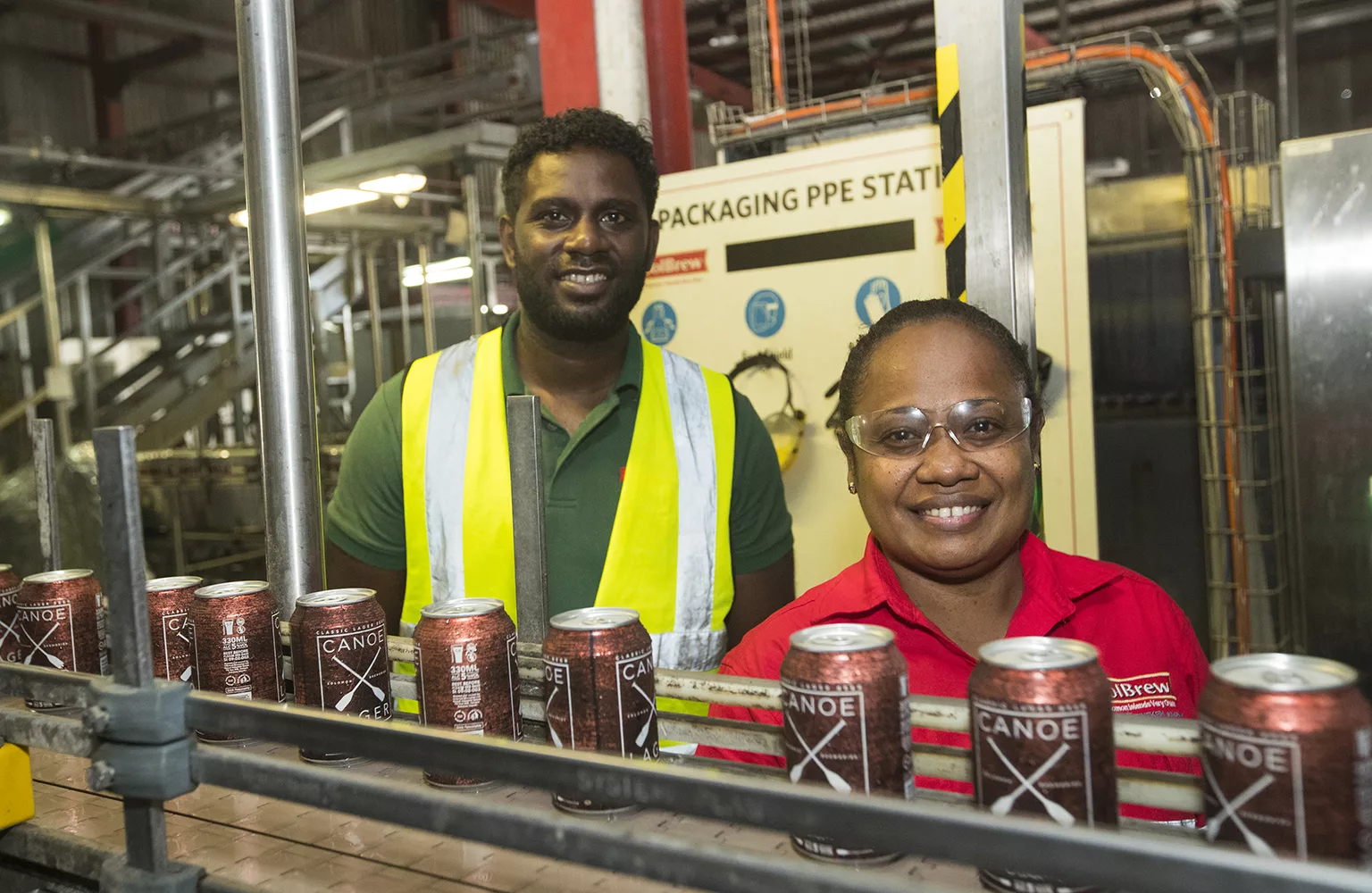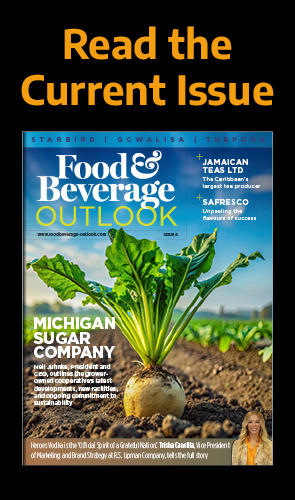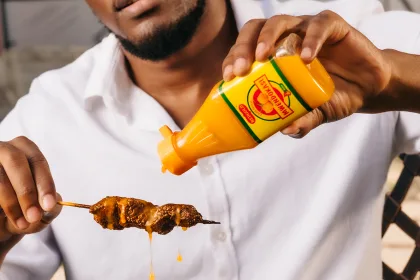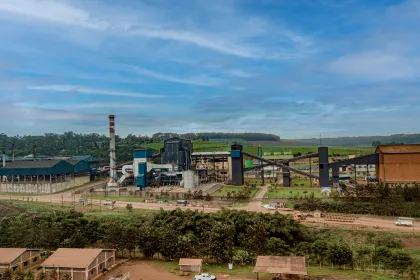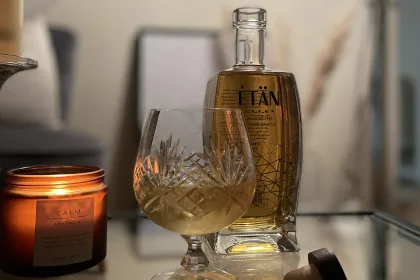Solomon Breweries has served islanders with refreshing lagers for the past three decades. Its Country Manager, Gilbert Rothmaier, shares the company’s success story.
RAISING THE BAR
The archipelagic state of the Solomon Islands is situated in the southwest Pacific Ocean, and its capital, Honiara, in the unspoilt and uncrowded pristine paradise, is home to Solomon Breweries, the country’s first brewery.
Established in 1993, Solomon Breweries plugs into an untapped market, producing quality beers with a range of premix beverages.
The first brand Solomon Breweries introduced to the market was SB Lager, whose full-bodied taste was relaunched in a can with a frigate bird design in 2015 – locally recognised as the symbol of the Solomon Islands.
The award-winning SolBrew Lager soon followed and has become an iconic local premium beer brand. With Canoe Lager launched in 2015 as the go-to for a day at the beach, it developed into the country’s number-one mainstream beer brand before Canoe Blue was added to Solomon Breweries’ portfolio as a light beer.
Alongside providing people with some libation, 98 percent of the company’s workforce are Solomon Islanders, whilst only two percent are expatriates.
“Our employees represent all the different provinces, ages, and religions in the country. However, we have a young talent pool, and a strong percentage of our workforce are women, which happened organically. It’s a natural process for us,” introduces Gilbert Rothmaier, Country Manager of Solomon Breweries.
Driven by talent as well as a code of conduct, Solomon Breweries’ HR department has enforced a domestic violence policy.
“We have a platform where you can report harassment and discrimination. This is an organisation where we discuss issues freely; for example, on International Women’s Day this year, we had a session where young women spoke about the obstacles they experience on a daily basis.
“Stood before their colleagues, they shared that their male counterparts don’t listen to them or take them seriously because of their gender or their age. This generated great discussion amongst all the staff; opening that dialogue enables us to work to become a better place,” Rothmaier informs us.
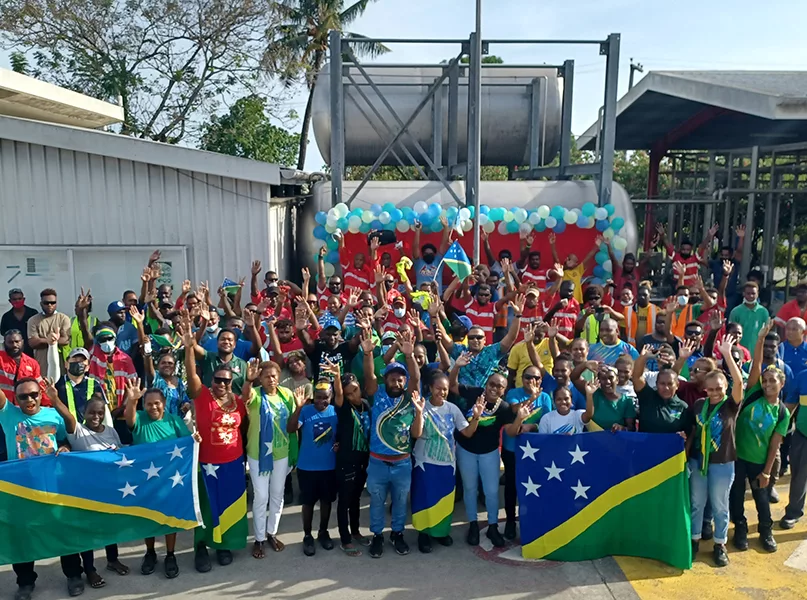
OPENING THE DOOR
Today, Solomon Breweries is part of the Dutch multinational brewer, Heineken, currently the second-biggest beer company in the world, and as such, it significantly invests in processes, procedures, and policies to uphold standards.
“Each operating company must make funding available to ensure businesses comply with local laws or the mother company policy.
“Additionally, the production side also has rigorous standards, so when an international organisation such as Heineken enters a small country like the Solomon Islands, it is a challenge to ensure we meet its requirements,” Rothmaier expresses.
Solomon Breweries unveiled Heineken as an extension of its portfolio at its 20th anniversary celebrations in 2013. The move gave Solomon Islanders a wider choice of beverages, and as the company already had a strong reputation, it was perfectly placed to introduce a brand with global status.
Despite the various challenges of working with a giant of the brewing world, SolBrew Lager received gold at the 61st Monde Selection Awards in 2022.
Monde Selection offers a comprehensive evaluation of consumer products within the culinary, health, and beauty spheres by the International Quality Institute, founded in 1961 in Brussels, Belgium. Therefore, the esteemed and respected award is a testament to SolBrew Lager’s passion for quality and high standards.
“When I have invited people to the brewery for a tour, they are in awe of the equipment as they don’t realise the level of standards that we have to maintain to ensure that the first bottle brewed is always to a required specification,” reveals Rothmaier.
Every year, Heineken conducts a climate survey; although it is not mandatory, everyone is encouraged to participate. The company requests to see what the climate is around the business, and usually, around 96 percent of employees comply.
“The results are overall quite promising. We engaged with Heineken and some other world-class breweries; the outcome is that we focus on any shortcomings and look forward to the next survey,” he notes.
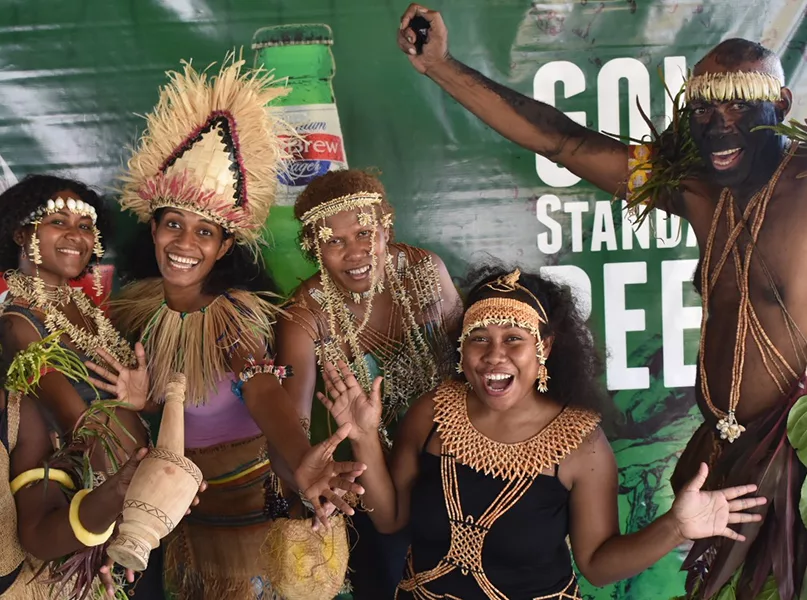
JOURNEY TO NET ZERO
“Positioned in the Pacific, we have environmental targets and see the real-life impact of problematic weather patterns. The sea level is rising, so the target went from being carbon neutral in 2021 to net zero by 2030,” Rothmaier explains.
Unfortunately, the COVID-19 pandemic impacted the progress of one of Solomon Breweries’ major projects. The SBD$12 million wastewater treatment plant suffered a setback when the supplier could not complete the final phase, as travel was interrupted during this tumultuous time.
“We are now at the site acceptance testing stage of the wastewater treatment plant after the country was in total lockdown until February last year. That is our biggest project, but we also have a solar energy venture that has been negatively affected by the COVID-19 pandemic,” he adds.
The solar panel project already has designated roof space, totalling around USD$400,000 of investment, aligning with SolBrew’s net zero journey.
“All breweries need to move towards renewable energy such as solar or a hydroelectric system. We had to change some of the previous projects due to the COVID-19 pandemic, so we plan to install the solar panels by Q3 2024.”
In the task of beer making itself, there is a CO2 recovery plan, meaning it is recouped and cleaned in the production process, then put back and packaged for reuse.
“Our commercial fridges in bottleshops are the latest in terms of compliance, due to investment in suppliers that meet green standards and are 100 percent greener due to investment in Heineken fridges. Moreover, the electricity consumption from the fridges we supply to our distributors is efficient,” shares Rothmaier.
“Positioned in the Pacific, we have environmental targets and see the real-life impact of problematic weather patterns. The sea level is rising, so the target went from being carbon neutral in 2021 to net zero by 2030”
Gilbert Rothmaier, Country Manager, Solomon Breweries
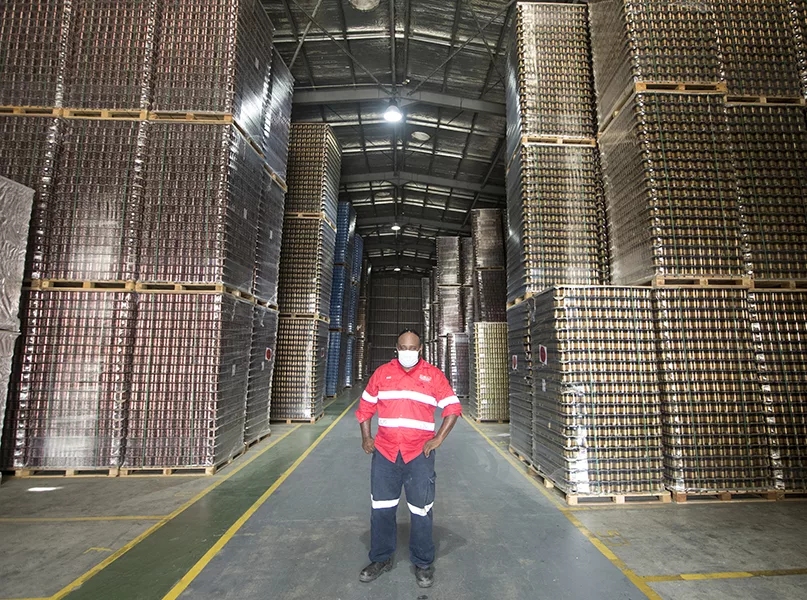
BREWING A BETTER WORLD
In 2019, Solomon Breweries won the top Heineken Asia Pacific Corporate Social Responsibility (CSR) award for the Zero Waste initiative, where waste is being recirculated into communities for other uses. For example, Brewer’s Grain – an organic by-product of brewing – is provided for free to smallholder pig farmers. This reduces the cost they pay for pig feed to as much as 50 percent. The company beat other Heineken operations to the award in the region.
The company’s CSR programme, Brewing a Better World, focuses on five key areas: responsible consumption, water efficiency, zero waste, community, and reducing CO2.
“We have CSR targets that range from ensuring human rights to focusing on staff. CSR is not a checklist, but a skill,” surmises Rothmaier.
Solomon Breweries always identifies local talents and offers opportunities to develop and set them on a sturdy career path.
Two of Solomon Breweries’ top employees are presently on a short-term upskilling assignment in Papua New Guinea (PNG) to obtain a different perspective on brewing and experience a bigger operation.
“I have been in the business myself for around 15 years. It is a great place to work; we are very family-oriented and focused on employee welfare and well-being.
“What I find working in the beer industry is that at least 60 percent of the workforce have been in this space for more than five to 10 years, which says a lot about the work environment,” Rothmaier observes.
Around three to four staff members at Solomon Breweries have been with the company for 30 years – making them as old as the brewery. The length of time that people tend to stay in the industry and the brewery itself illustrates how Rothmaier feels about his position.
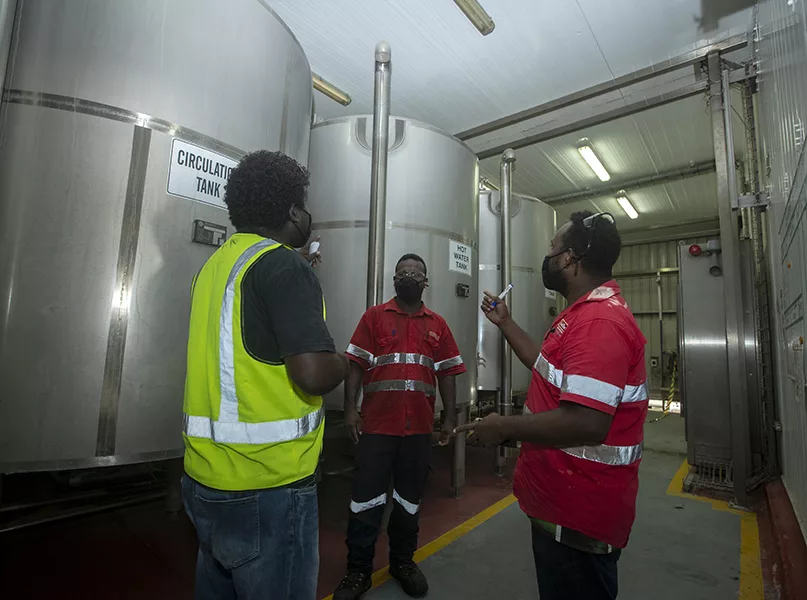
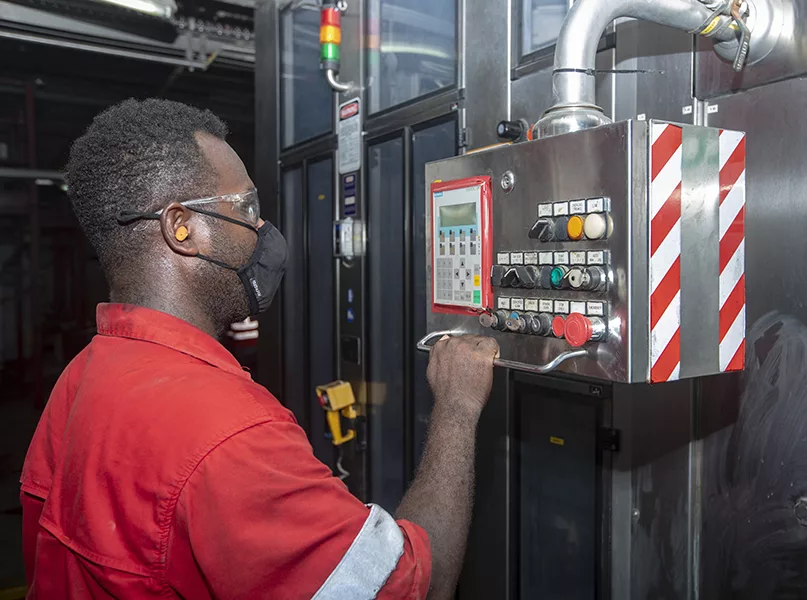
30 YEARS OF BEERS
The iconic SolBrew bottle has had a limited-edition label revamp this year. Its new label, which encompasses the Pacific Games, a multi-sport event held every four years among athletes from Oceania also celebrates the brand’s 30th anniversary.
Looking towards the coming years, Solomon Breweries wants to concentrate on the people side of the operation, particularly in the supply chain. All of Solomon Breweries’ key supplies are delivered from overseas.
“Our key ingredients and materials are sourced from Indonesia. To contextualise, the Solomon Islands relies on imports for everything; for example, unlike Fiji and PNG, we don’t produce commodities such as sugar,” Rothmaier elaborates.
With investments in solar energy and the wastewater treatment plant being commissioned, the company is keen to reap the benefits of its projects as the Solomon Islands has the highest power tariffs in the world.
“It is quite challenging to operate a business of this size in an expensive country. As we are within the manufacturing space, it is critical to ensure that we observe the guidelines and deliver top-quality products,” he sets out.
Given the current economic situation, the company is focused on operating a sustainable business as efficiently as possible.
“We are concentrating on sustaining our impact on the economy. We also want to obtain the talent the country has to offer, and with our investments, we are ensuring we have the equipment ready for the future,” Rothmaier concludes.
